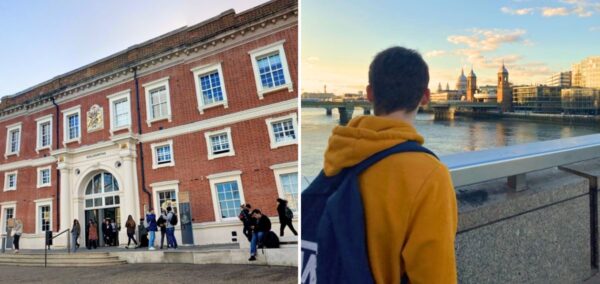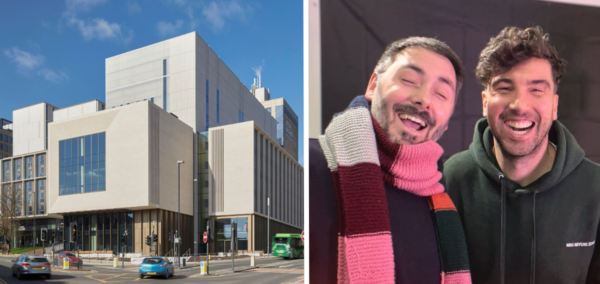
Bristol University contributed towards Natasha Abrahart’s death, High Court upholds
Natasha took her own life in April 2018 whilst studying at the university
A High Court has dismissed the University of Bristol’s appeal in the Natasha Abrahart case.
Natasha took her own life in April 2018 on the same day she was due to give a presentation whilst studying at the university.
The 20-year-old physics student, who was in her second year, had been diagnosed with chronic social anxiety disorder two months earlier.
Bristol County Court ruled in May 2022 that the university contributed to Natasha’s death by failing to make reasonable adjustments for her, thus breaching the Equality Act 2010 on multiple occasions, which amounted to disability discrimination.
In October 2022, Bristol University submitted an appeal against these findings to the High Court.
Today (14th February), in a 62-page judgement, Mr Justice Linden found that the university failed on all seven grounds of appeal.
In relation to Natasha’s father’s cross-appeal that the university had a duty of care to her, Mr Justice Linden concluded it was “not necessary” for him to “express any view, one way or the other”.
He added that the “issue is one of potentially wide application and significance. Determining it would increase the risk of prolonging this litigation, which I regard as undesirable.”
Speaking outside Bristol Civil Justice Centre this morning, Robert Abrahart, Natasha’s father, said: “It has been a long and painful journey to reach this point, and the University of Bristol has fought us every step of the way.
“The result is that we now have a judgment from the High Court confirming what we always knew to be true.
“The University of Bristol failed our daughter, broke the law, and contributed to her death.”

Robert and Margaret Abrahart delivered statements this morning outside Bristol Civil Justice Centre
Natasha’s mother, Margaret Abrahart, addressed her statement directly to Evelyn Welch, the Vice-Chancellor of Bristol University.
“It is time to stop this. Don’t instruct your lawyers to pursue another pointless appeal. Don’t delay any longer. Please stop your PR machine from issuing another press release about how the University would ‘once again like to extend our sympathies to [Natasha’s] friends and family.’ We don’t need, or want, your sympathy. We want action,” she said.
She added: “We want you to think how you would wish your son or daughter to be treated at university if they were disabled and needed their rights protecting.”
Natasha’s body was found on the same day she was due to deliver a presentation in front of fellow Bristol University students and staff in a lecture theatre with a capacity of 329 people.
Two months earlier, she had sent an email to a member of staff at the university which said: “I’ve been having suicidal thoughts and to a certain degree attempted it.”

Natasha alongside her mother (image via SWNS)
Mr Abrahart proceeded to take legal action against the university alleging it had contributed to his daughter’s death by failing to make reasonable adjustments for her.
In his judgement issued at Bristol County Court, Judge Alex Ralton concluded that by failing to adjust the nature of the assessment according to Natasha’s social anxiety, Bristol University had discriminated against her on the grounds of disability.
Ralton said: “It was accepted by the medical experts that the primary stressor and cause of Natasha’s depressive illness was oral assessment.”
Bristol University’s lawyer accepted this but argued they didn’t have a responsibility to alter the nature of the assessment because having “an ability to explain and justify experimental work orally is a core competency of a professional scientist”.
Judge Ralton rejected this defence and said: “It is obvious to me that the fundamental purpose of the assessments was to elicit from Natasha answers to questions put to her following the experiments, and it is a statement of the obvious that such a process does not automatically require face to face oral interaction and there are other ways of achieving the same.”
Ralton went on to order the university to pay damages of £50,518 to reflect the injury to Natasha’s feelings, the deterioration of her mental health, as well as her funeral costs.
In October 2022, Bristol University submitted an appeal against Judge Ralton’s findings to the High Court.
On the decision to submit an appeal, a university spokesperson said at the time: “After carefully considering the judgement and its implications for the higher education sector, we will be seeking leave from the High Court to appeal the judge’s finding that the University was in breach of the Equality Act. [..]
“We hope it will also enable us to provide transparency to students and their families about how we support them and to give all university staff across the country the confidence to do that properly.”
Following today’s ruling, Professor Evelyn Welch, Vice-Chancellor and President of the University of Bristol, said: “Natasha’s death is a tragedy – I am deeply sorry for the Abrahart family’s loss.
“At Bristol, we care profoundly for all our students and their mental health and wellbeing is a priority and is at the heart of everything we do. We continue to develop and improve our services and safeguards to support our students who need help.
“In appealing, we were seeking clarity for the Higher Education sector around the application of the Equality Act when staff do not know a student has a disability, or when it has yet to be diagnosed. We will work with colleagues across the sector as we consider the judgment.
“I am grateful to our dedicated colleagues who work tirelessly to support all our students and to those who specifically supported Natasha which included a referral to the NHS. Higher Education staff across the country share our deep concern about the increase of mental health issues amongst young people, and with that rise comes the increasing importance that staff, students, and their families are clear on what support universities can and should provide, and that students receive appropriate specialist care under the NHS should they need it.
“In 2022 Bristol became one of the first universities to receive the University Mental Health Charter Award, which recognises the continued hard work of our staff and students in terms of taking a strong, structured approach towards improving mental health and wellbeing across our university. We know there is always more to do, and we will keep working to achieve the best for everyone in our community.”
If you or someone you know has been affected by this story, please speak to someone or contact Samaritans on 116 123 at any time. You can contact Anxiety UK on 03444 775 774, Mind on 0300 123 3393, and Calm (Campaign against living miserably, for men aged 15 to 35) on 0800 58 58 58. You matter.
A list of wellbeing services available to Bristol students can be found here.
Featured image via SWNS.
Related stories recommended by this writer:
• Natasha Abrahart’s parents launch legal case against Bristol Uni over daughter’s suicide
• Discrimination by the University of Bristol led to the suicide of a vulnerable student
• Natasha Abrahart’s parents appalled at ‘inadequate’ government response to student welfare petition



















